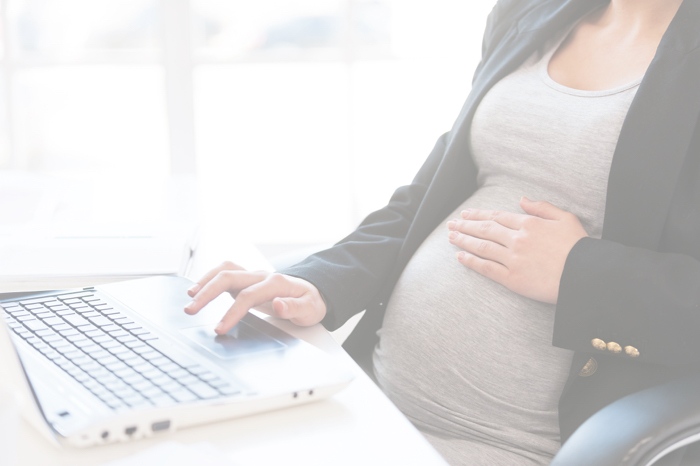Guide to California Maternity Leave Laws

Many women are entitled to take time away from work during and after pregnancy without fear of losing their job.
When it comes to maternity leave, California is a leader, providing great benefits and strong protections for parents.
If you believe you have been denied pregnancy or family leave, consult a California employment law attorney in Los Angeles today.
The attorneys at Starpoint Law know what protections you have under federal and state law.
To understand your rights and seek the justice you deserve, contact our team today.
California Maternity Leave Laws
There are three types of maternity leave in California: pregnancy disability leave, family medical leave, and reasonable accommodations.
Pregnancy Disability Leave
Pregnancy disability leave (PDL) is unpaid leave available to employees who are physically or mentally disabled due to their pregnancy, childbirth, or a related medical condition. Employees are eligible for up to four months of leave per pregnancy.
For an employee to take pregnancy leave, California law requires the following:
- The employee must have a disability related to her pregnancy, childbirth, or some related medical condition; and
- The employer must be subject to California’s PDL law.
Employers with five or more employees typically qualify, in addition to state or local government entities.
What qualifies as a disability is a key to getting leave under PDL. Pregnancy alone is not a disability. The employee must be able to show, with her doctor’s confirmation, that she is unable to perform one or more essential job functions because of her condition.
Some examples of physical and mental disabilities are:
- Severe morning sickness,
- Gestational diabetes,
- Preeclampsia,
- Doctor-ordered bed rest,
- Pre- and postpartum depression, and
- Post-traumatic stress disorder.
PDL is available to full-time and part-time employees, as well as recently-hired workers.
Family Medical Leave
There are both federal and state leave laws for parents who take time away from work to bond with their new child.
Due to recent changes to maternity leave in California for 2021, the California Family Rights Act (CFRA) now affords more protections than the federal Family and Medical Leave Act (FMLA).
In California as of 2023, eligible employees are entitled to up to 12 weeks of job-protected unpaid leave for maternity purposes under the California Family Rights Act (CFRA) and the Family and Medical Leave Act (FMLA). This time off extends to both parents and includes provisions for bonding with a new child through birth, adoption, or foster care placement.
There are three requirements under CFRA for an employee to take family leave:
- The employer must employ at least 20 workers within 75 miles of the employee’s worksite;
- The employee must have worked more than 12 months with their employer; and
- The employee must have at least 1,250 hours of service with the employer for the previous 12-month period.
Parents do not need to take family leave all at once, but it must be completed within one year of the child’s birth.
During the 12-week period, the employer must continue to maintain healthcare coverage for the employee. The employee also has the right to return to the same or a comparable position.
Reasonable Accommodations
California employers cannot discriminate against employees on the basis of physical or mental disabilities. This includes women who are disabled as a result of their pregnancy or medical conditions related to pregnancy.
Under California’s anti-discrimination law, covered employers must make reasonable accommodations for disabled employees, which may include a period of leave.
There are four requirements for the employee to be eligible for reasonable accommodations:
- The employer must be subject to California’s anti-discrimination laws;
- The employee must have a qualifying mental or physical disability that impairs his or her ability to perform essential job functions;
- The employee must be able to perform the job’s essential functions if given a reasonable accommodation; and
- The reasonable accommodation must not cause the employer an undue hardship.
Qualifying disabilities are the same as under PDL, and most employers with five or more employees must comply with the anti-discrimination laws.
How Long Is Maternity Leave in California?
How long is maternity leave in California? The length of California maternity leave depends on the employee’s circumstances, particularly if the employee has a pregnancy-related disability. However, a woman can take up to seven months of maternity leave per pregnancy.
To maximize the amount of leave, an employee should take PDL to leave first, then family leave, and then request reasonable accommodations.
GET MATERNITY LEAVE HELP
Fight for your rights with the help of one of our attorneys. Our team of employment attorneys will be by your side to help you recover the compensation you deserve. Get justice today.
Is Maternity Leave in California Paid or Unpaid?
Employers are not required to pay employees during maternity leave, but some employees may still receive compensation through State Disability Insurance, California Paid Family Leave, or by using accrued paid time off during maternity leave.
Can an Employer Fire You During or After Pregnancy?
The Fair Employment and Housing Act prohibits employers from firing employees on the basis of pregnancy, as this is sex discrimination.
Keep in mind, however, that just because you are pregnant does not mean your employer cannot fire you. If you are not performing well or your department is downsized, you can lose your job.
Seize your California maternity leave benefits today – Reach out to us and don't miss this opportunity!
At Starpoint Law, we provide empathy, integrity, and commitment to all of our clients.
Unlike with large law firms, you will meet one-on-one with founding partner Aidin Ghavimi to review your case.
Contact us today to learn more about maternity leave in California or to discuss your options.
Where You Can Find Our Sherman Oaks Office

